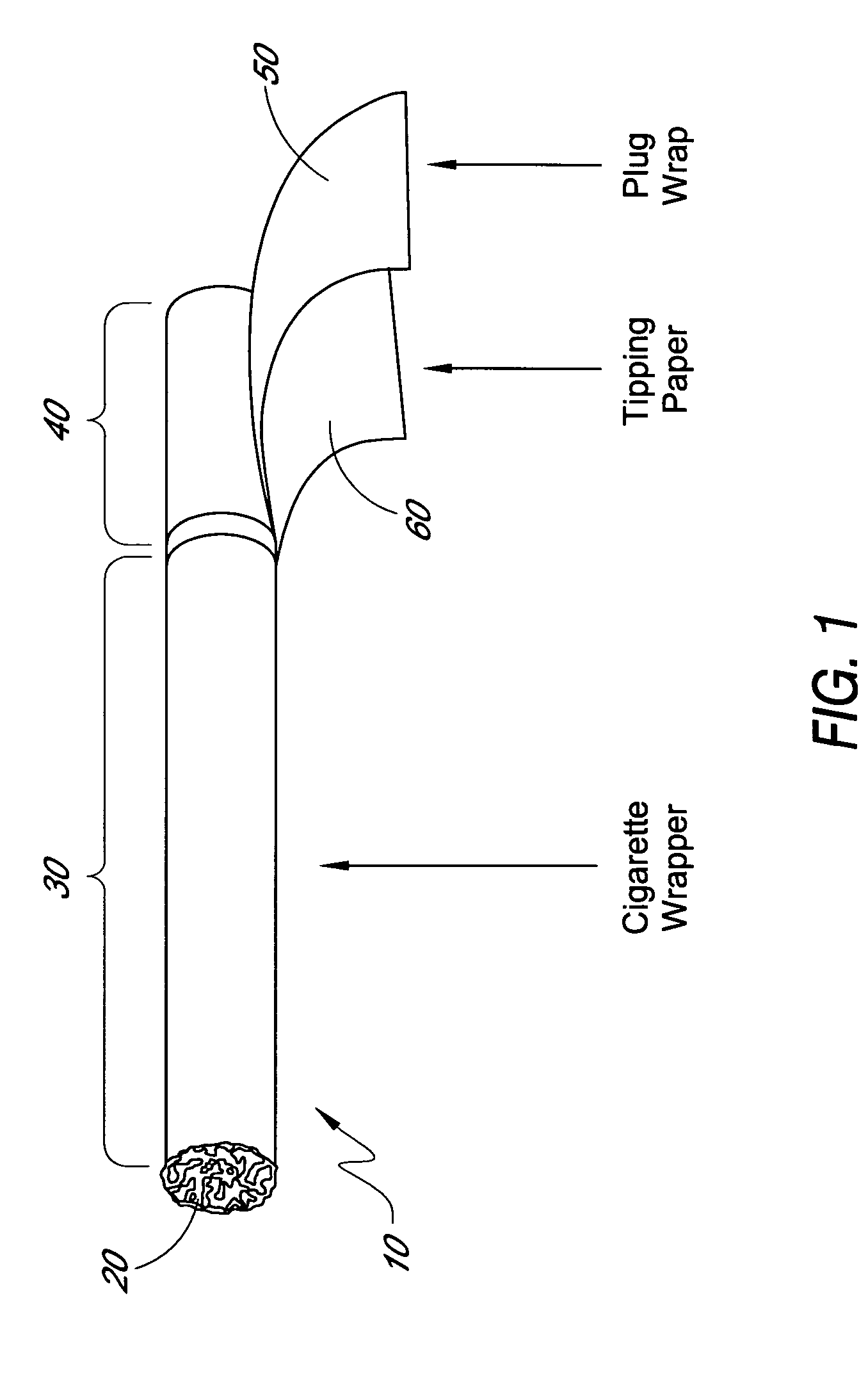Tobacco product labeling system
a product labeling and tobacco technology, applied in the field of visual indicators, can solve the problems of difficult deciphering for a tobacco user, limited success of nrt in enabling people to quit smoking, etc., and achieve the effect of reducing the exposure of a tobacco consumer to nicotine, less nicotine, and reducing the nicotine conten
- Summary
- Abstract
- Description
- Claims
- Application Information
AI Technical Summary
Benefits of technology
Problems solved by technology
Method used
Image
Examples
example 1
Isolation and Sequencing
[0172] TobRD2 cDNA (Conkling et. al., Plant Phys. 93, 1203 (1990)) encodes QPTase, which is predicted to be a cytosolic protein. Comparisons of the NtQPT1amino acid sequence with the GenBank database revealed limited sequence similarity to certain bacterial and other proteins; quinolate phosphoribosyl transferase (QPTase) activity has been demonstrated for the S. typhimurium, E. coli. and N. tabacum genes. The NtQPT1encoded QPTase has similarity to the deduced peptide fragment encoded by an Arabidopsis EST (expression sequence tag) sequence (Genbank Accession number F20096), which may represent part of an Arabidopsis QPTase gene.
example 2
Transformation of Tobacco Plants
[0173] DNA of the QPTase gene, in antisense orientation, is operably linked to a plant promoter (CaMV 35S or TobRD2 root-cortex specific promoter) to produce two different DNA cassettes: CaMV35S promoter / antisense QPTase-encoding gene and TobRD2 promoter / antisense QPTase-encoding gene.
[0174] A wild-type tobacco line and a low-nicotine tobacco line are selected for transformation, e.g., wild-type Burley 21 tobacco (Nic1+ / Nic2+) and homozygous Nic1- / Nic2-Burley 21. A plurality of tobacco plant cells from each line are transformed using each of the DNA cassettes. Transformation is conducted using an Agrobacterium vector, e.g., an Agrobacterium-binary vector carrying Ti-border sequences and the nptII gene (conferring resistance to kanamycin and under the control of the nos promoter (nptII)).
[0175] Transformed cells are selected and regenerated into transgenic tobacco plants called R0. The R0 plants are grown to maturity and tested for levels of nicotin...
example 3
Tobacco Having Reduced Nicotine Levels
[0177] Tobacco of the variety Burley 21 LA was transformed with the binary Agrobacterium vector pYTY32 to produce a low nicotine tobacco variety, Vector 21-41. The binary vector pYTY32 carried the 2.0 kb NtQPT1 root-cortex-specific promoter driving antisense expression of the NtQPT1cDNA and the nopaline synthase (nos) 3′ termination sequences from Agrobacterium tumefaciens T-DNA. The selectable marker for this construct was neomycin phosphotransferase (nptII) from E. coli Tn5 which confers resistance to kanamycin, and the expression nptII was directed by the nos promoter from Agrobacterium tumefaciens T-DNA. Transformed cells, tissues, and seedlings were selected by their ability to grow on Murashige-Skoog (MS) medium containing 300 μg / ml kanamycin. Burley 21 LA is a variety of Burley 21 with substantially reduced levels of nicotine as compared with Burley 21 (i.e., Burley 21 LA has 8% the nicotine levels of Burley 21, see Legg et al., Can J Ge...
PUM
 Login to View More
Login to View More Abstract
Description
Claims
Application Information
 Login to View More
Login to View More - R&D
- Intellectual Property
- Life Sciences
- Materials
- Tech Scout
- Unparalleled Data Quality
- Higher Quality Content
- 60% Fewer Hallucinations
Browse by: Latest US Patents, China's latest patents, Technical Efficacy Thesaurus, Application Domain, Technology Topic, Popular Technical Reports.
© 2025 PatSnap. All rights reserved.Legal|Privacy policy|Modern Slavery Act Transparency Statement|Sitemap|About US| Contact US: help@patsnap.com

